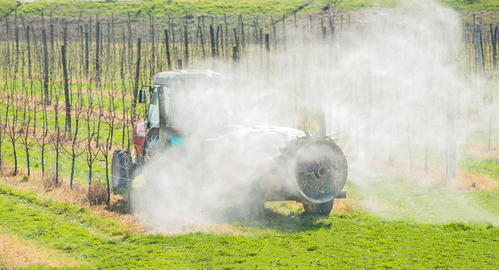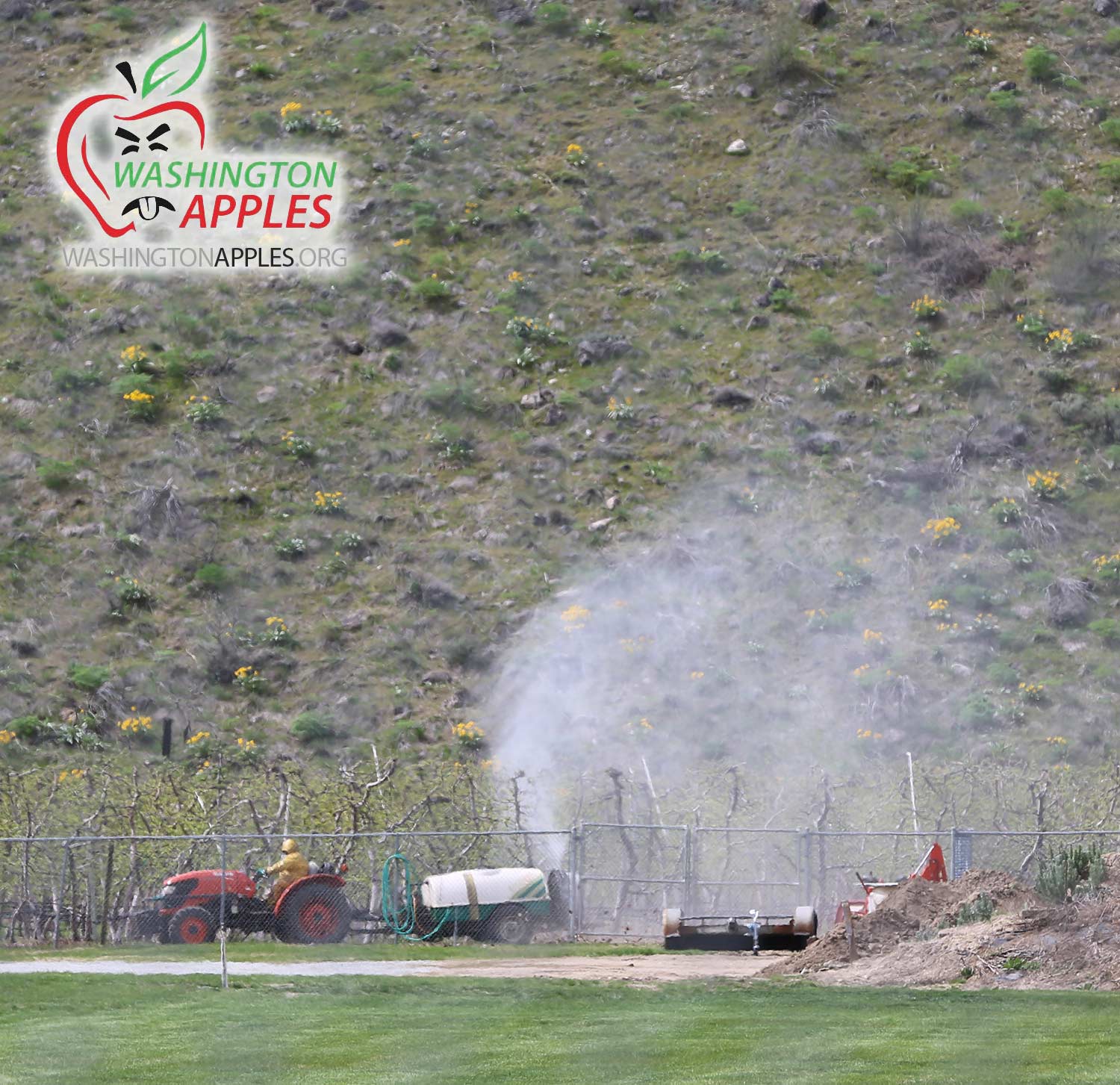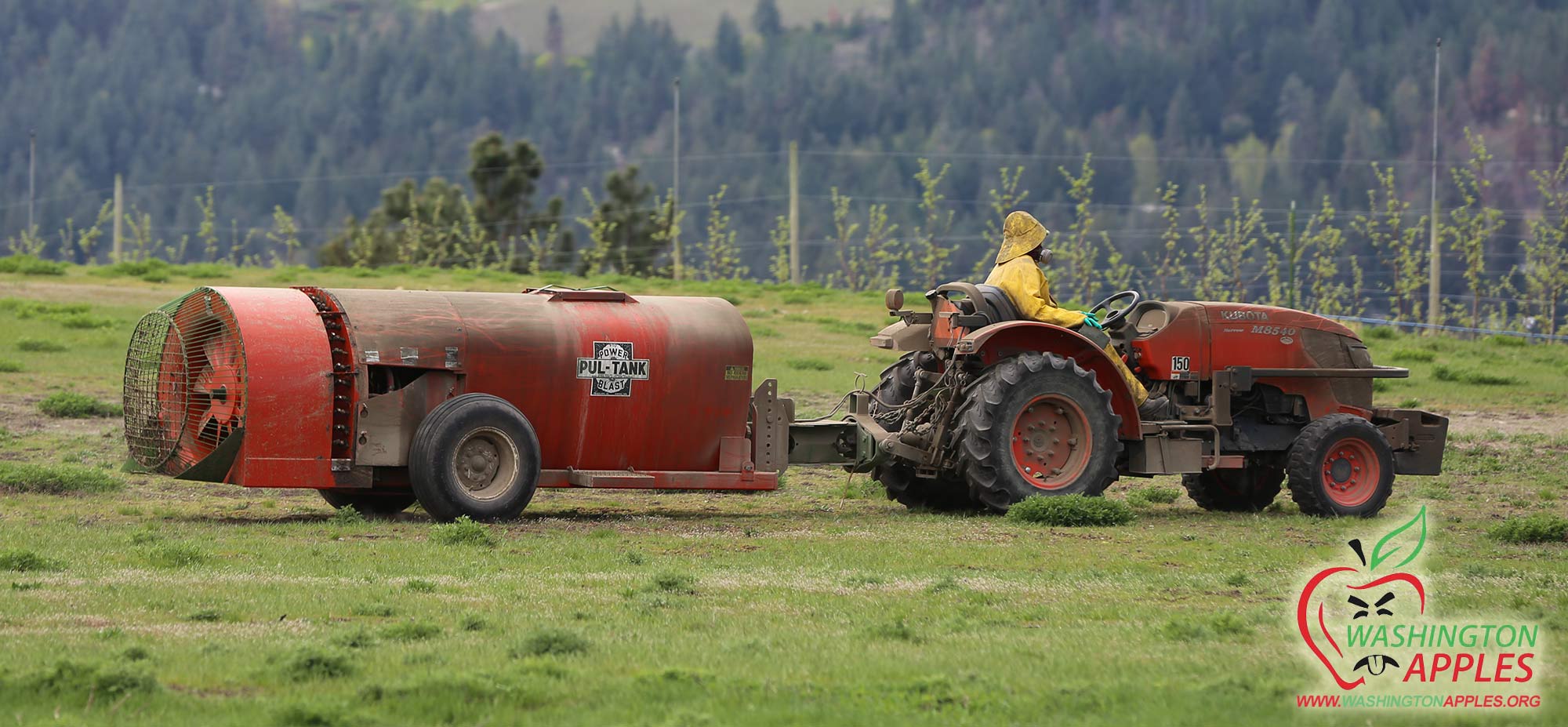
What is “Organic”? The State of Washington defines it as “Organic is a labeling term that indicates that an agricultural product has been produced by integrating cultural, biological, and mechanical practices that foster cycling of resources, promote ecological balance, and conserve biodiversity. Use of sewage sludge, irradiation, genetic engineering, and most synthetic fertilizers or pesticides is prohibited.”
The 101st congress of the United States layed out the official rules for organic certification in the Organic Foods Production Act of 1990.
Congress found that “consumers are demanding fresh and processed foods produced using organic methods“. Way back in 1990! Imagine that 26 years ago we were seeing Organics positively trending, and enough to gain congressional attention.
Turning to Organic methods seems like common sense for Washington apple growers, doesn’t it? Not using harsh synthetic pesticides seems like a good idea, doesn’t it? Especially when your house is in the middle of your orchard, as most houses are in Central Washington.
Most apple growers have children, and raise their children among the orchards. So why would they knowingly use things like chlorpyrifos (proven to lower the IQ of children, and cause developmental issues ) so extensively? Dr. Philippe Grandjean, MD , of the Department of Environmental Health, Harvard School of Public Health, Boston, MA, USA, calls chlorpyrifos a culprit in the “pandemic of developmental neurotoxicity“. Whoa. Did you just read that? It’s got my attention:
Strong evidence exists that industrial chemicals widely disseminated in the environment are important contributors to what we have called the global, silent pandemic of neurodevelopmental toxicity.6, 7 The developing human brain is uniquely vulnerable to toxic chemical exposures, and major windows of developmental vulnerability occur in utero and during infancy and early childhood.8 During these sensitive life stages, chemicals can cause permanent brain injury at low levels of exposure that would have little or no adverse effect in an adult.
Are you paying close attention, conventional apple growers? Do you need any more evidence or reason to go organic?
Some growers won’t go organic, even in this day and age, and with all the evidence. We’ve been researching the issue for some time.
Here are some common excuses that conventional apple growers make for not going organic:
- There’s a lot of paperwork and red tape to growing certified organic. Our answer: Yes, there is certainly, and it’s a good thing because quality control measures like these keeps the “Organic” label on your food a thing of integrity. It maintains consumer confidence. Just because organic certification is difficult, or time consuming, or takes paperwork, isn’t it worth it? Not to spray yourself, your family, and your environment with poison? It may not be easy doing all this paperwork, but it is the ethical thing to do (and the healthy thing for yourself, your workers, and your family!)
- It takes several years years to turn a crop organic. Our answer: Yes, it does. But look at what other successful organic growers like Jim Koan did. Start now, so that you can have a healthier family, home, and community. Again, the time argument…. not it’s not the easy way to grow apples. But it is the ethically right way.
- It’s not as profitable. It would cost us too much and we couldn’t afford to turn organic. Our answer: Conventional growers you have two options here… keep blasting chlorpyrifos into the air, keep creating an unethical product laden with pesticides, or do the ethically and morally correct thing? Change is scary. Embrace it. You could actually make more money growing Organic apples. According to this article in Forbes, “The USDA’s 2007 Agricultural Resource Management Survey (ARMS) of organic apple producers found that most farms chose organic methods because they could increase their income.” But even if you didn’t make as much money growing organic… Money isn’t a good excuse for justifying poisoning your family. Sadly, it will take government intervention and the changing of laws to force most apple growers to go organic. Most growers, stuck in their ways and stubborn, won’t voluntarily chance the possibility of risk in turning organic. It’s new, and takes learning new methods, which is not always easy. Change can be scary.
- Consumers will only buy large, beautiful, blemish-free apples at the grocery store. Our answer: Yes! This has been true with most consumers. Over the past 50 years, they have been trained to accept nothing less than a picture perfect fruit. Organic apples are most often smaller; not what the average American is used to seeing. But let’s be honest, conventional apples are unhealthy, unnatural Frankenstein creations. One part pesticide, one part herbicide, and one part fertilizer, and add a little wax on there to make it shine. Consumers have been taught to recognize a freakishly produced, terrible product, just because it is visually appealing. I mean… have you ever tasted a Red Delicious? It tastes like crap! Mushy and flavorless. But it’s the apple so often used in pretty pictures and marketing. Let’s eat with our brains, not with our eyes… The good news is that people are rapidly already changing their perceptions, and demand for organics is rapidly growing. It’s not such a crazy concept if an article in USA Today reads, “Organic farmers face growing pains as demand outpaces supply“.
- But you still have to spray organic crops. Our answer: Yes, you do. But not with harsh synthetic man-made pesticides. The Organic Foods Production Act of 1990 stipulates that synthetic substances are prohibited, and non-synthetic substances are allowed for use in organic food production. The point is that you don’t have to spray crops with harsh, horrible man-made pesticide crap from companies like Dow Chemical or Wilbur Ellis. Crap like chlorpyrifos, which was originally developed as a nerve gas in WW2 era, and converted to agricultural use as an insecticide postwar. Chlorpyrifos is extremely toxic to children, and drastically affects their development. You get to spray them with gentler things, like stated on the WSDA’s permitted substances…. Seaweed and fish extracts, and that’s a big step in the right direction. A product called “Bugitol” is on there as a pesticide. It’s made from Capsaicin, an active ingredient in Chili Peppers. Sounds fine to me, and a whole lot better than that chlorpyrifos garbage.
- You can’t get a decent crop yield from organic apples. Our answer: You may indeed get less of a yield. The USDA data said that “organic yields for fresh-market apples were 18 percent lower “. So yes, organic may have a lower yield, but size isn’t everything. Bigger yield and more profit does not justify the use of horrible pesticides like chlorpyrifos (proven to disturb the brains of children). Although the “biggest yield” might be the best thing for your profit margin, is it the best thing for human health? The community? Children? The environment? Will consumers even continue to buy your conventional apples? (The answer is no, the USDA is even giving you a clue: “While U.S. acreage and production of apples has declined in recent years, consumer demand has spurred a fast-growing organic apple sector. “) And lets face it… the only reason we are able to grow acres and acres of visually perfect conventional apples is… you guessed it, the modern chemical industrial-complex. Conventional apple growers are creating a chemically engineered product that is totally unnatural; it’s not at all what nature intended.
- Organic fruit can still has pesticides on it. Our answer: Yes, nothing is perfect. Natural pesticide residue can be found on organic produce, but its a heck of a lot better to have chili pepper residue on my apples than synthetic organophosphate pesticides that disrupt child brain development. Pesticide drift also happens, and it can unfortunately affect Organic fruit. But as Civil Eats points out “In most cases, even certified organic produce is not pesticide-free. But compared to most conventional produce, it can mean a big step in a less-toxic direction.” Organic is better. Why wouldn’t we all want a better, healthier way?
I stumbled upon this healthy lifestyle blog, Wake the Wolves, which gives some reasons why you should eat organic apples. One of the best and most common sense “Organic apples taste better.” They also spelled out the pesticide issue in plain speak, “Apples are highly contaminated because of the pesticide spraying process. Tractors are driven directly next to the apple trees with a mechanical spraying device that shoots out large even spurts of pesticide to coat the leaves AND the exterior of the fruit. This pesticide adheres to the skin and even seeps into the core because the concave shape near the stem creates a perfect bowl-shaped vessel.”
I think I will subscribe to that blog!
Let our own blog article be a word to the wise. The apple industry will wake up one day, just like it did with the Alar scare of the 1990’s, and will be forced to go entirely organic. Many growers won’t like it. Many will be confused and bewildered, and many will go belly up. Most will have ignored the warning signs, like this blog. So do the smart thing and convert to organic now. Organics will be government mandated someday, and all consumers will demand it that their fruit be organic. Blogs like this will educate and pave the way. Documentaries (like the dozens on Netflix) will show the average American what’s wrong with the food system. The time will come.
Wait a minute? Why am I talking about this day as if it is in the future? It’s already here. Pay attention guys, the USDA is even giving you a clue: “While U.S. acreage and production of apples has declined in recent years, consumer demand has spurred a fast-growing organic apple sector. ”
That same USDA article even says that “organic produce continues to show double-digit growth”. bigger industries have been disrupted more quickly than the $2.18 billion dollar apple Washington industry. (Which is a paltry sum in comparison to other industries). Take the taxi industry for example. If you told taxi drivers 5 years ago that Uber and Lyft would completely disrupt and change their way of life, would they have believed you?
Actually, that’s not so much a clue, as a giant red flag. Time to wake up conventional Washington apple growers!


